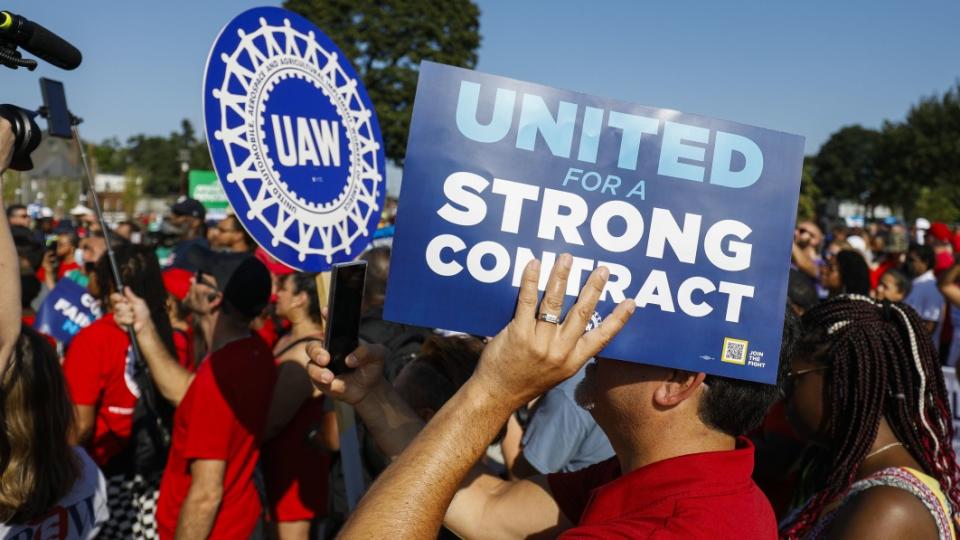Strike imminent? UAW, Detroit 3 at odds on last day of old contract

A deal between UAW and the Detroit 3 negotiators still appears far away as we enter the last day before a strike is called. If no deal is reached, the UAW said it plans for a series of strikes targeting individual, undisclosed U.S. auto plants, rather than a full walkout of nearly 150,000 workers. For the first time in the UAW's 80-plus-year history, the union could order members at all three of Detroit's automakers – General Motors, Ford and Stellantis – to walk off the job starting after their contracts expire at 11:59 p.m. ET on Thursday, UAW President Shawn Fain said in a Facebook video address Wednesday evening.
“We do not yet have offers on the table that reflect the sacrifices and contributions our members have made to these companies,” he said. “To win we’re likely going to have to take action. We are preparing to strike these companies in a way they’ve never seen before.”
Referring to Biblical scripture, Fain asked union members: "Are you willing to have faith and move that mountain? Nobody’s coming to save us."
Ordering workers at specific plants to stop working, Fain said, would "cause confusion." Stopping work at a key plant that produces engines or transmissions, for example, could have a cascading effect by depriving other factories of parts they need to produce vehicles. Another option would be to strike profitable pickup truck or SUV assembly plants.
Coordinated strikes would represent arguably the most ambitious U.S. labor action in decades and could impact U.S. economic growth, depending how long they last.
Fain said it was still possible that at a later date all of the auto workers could strike. A full strike would hit earnings at each affected automaker by about $400 million to $500 million per week assuming all production was lost, Deutsche Bank has estimated. Some losses could be recouped by boosting production schedules after a strike, but that possibility fades as a strike extends to weeks or months.
U.S. President Joe Biden wants auto union UAW and major automakers to work around-the-clock to avoid a strike, White House economic adviser Jared Bernstein said Wednesday.

 Yahoo Autos
Yahoo Autos 
